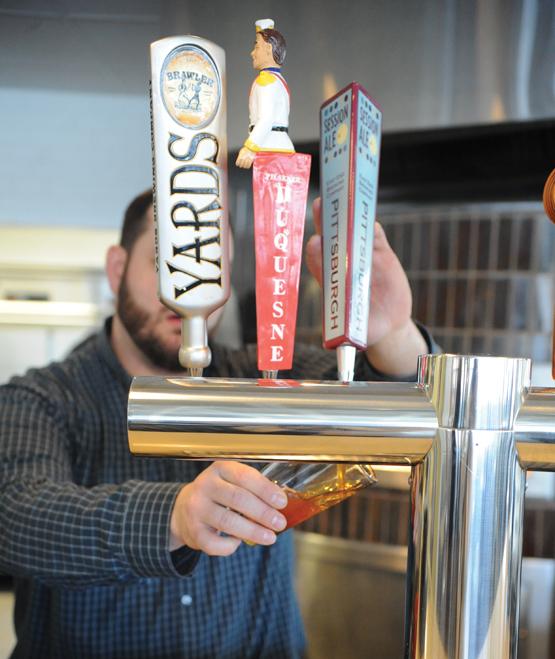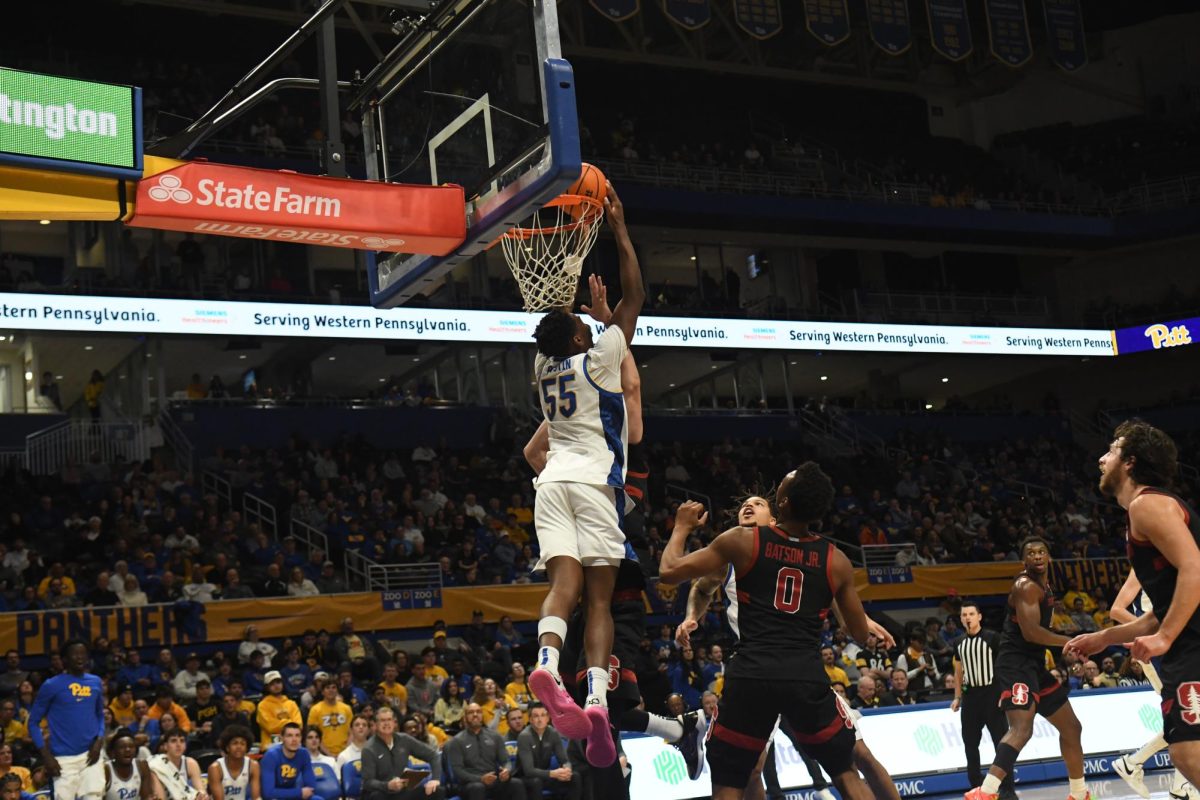Beer Edition: Student bartenders make money, memories tending bar
April 17, 2014
Alex Lavella’s strangest experience on the job at Peter’s Pub happened one night when a patron impersonated a bouncer.
“He was just taking people’s IDs and telling people to leave. It was really weird,” said Lavella, a junior pharmacy major who bartends at Peter’s Pub on weekends.
While students dig deep into their wallets at Oakland’s many bars to consume pitchers of beer and shots, Lavella is part of a group of students who profit from “Thirsty Thursdays.” These students experience both sides of the bar scene: the authority behind the counter and the excitement within the college bar setting.
“It’s so crazy that I don’t feel the need to party. It’s a party where I work,” said Nicholas McSadden, a sophomore political science major at Eastern Michigan University.
McSadden bartends at ScoreKeeper’s, a sports bar popular among University of Michigan students in Ann Arbor, Mich. While McSadden, 19, mixes exotic drinks such as the Wisconsin Lunchbox — a cocktail featuring Coors Light, orange juice and amaretto — he’s too young to sample the end results of his recipes.
“It’s definitely very tempting knowing that I have two years of watching people drink around me. I guess I am getting a head start on my 20s,” McSadden said. “By the time I am 21, I will be used to the bar environment.”
In both Mighican and Pennsylvania, employees above the age of 18 can legally serve alcohol in a licensed retail establishment.
Lavella, who was also younger than the legal drinking age when she first started bartending, said bartending was a difficult job to explain to her parents.
“No one wants their 19-year-old in that environment. But I told them that there is no dream job that I will be able to make enough money to pay for my rent,” she said.
As many college students balance schoolwork with working to cover expenses such as tuition and rent, bartending provides the needed cash.
According to Lavella, bartending works in a similar fashion to waitressing. The minimum cash wage before tips in Pennsylvania is $2.83 an hour — 70 cents greater than the federal minimum — and tips are at the discretion of the customers.
Sam Hietsch, a junior English literature major, bartends at Joe Mama’s in Oakland. On nights when any of Pittsburgh’s sports teams are winning, Hietsch said tips come in easier.
Flirting is another trick for quick cash for some bartenders, and McSadden said he’s frequently flirted with girls at his bar to get better tips.
Lavella said she has experienced a handful of peculiar experiences at Peter’s Pub.
“I have had a guy lick my arm once, and sometimes you see people you know getting in fights,” Lavella said.
Bartenders also have to deal with a different kind of fight — arguments over the validity of a customer’s ID.
Hietsch said she once had a customer who was wearing the same clothes in her ID picture as she was when she presented the ID at the bar, and her birthday on the card matched the current date .
“I just told her I couldn’t serve her. It was pretty obvious [the ID] was a fake,” Hietsch said.
Lavella, who describes herself as an “energy junkie,” works four jobs — including waitressing, promoting a local beer company and working as a pharmacy technician — to keep financially stable. She enjoys the “sense of independence” working gives her.
“School is expensive, and I don’t like asking my parents for money,” Lavella said.
While Lavella’s many hats might seem tough to juggle, organizing her time helps her balance the task. She advised students to “take it on a little by little.”
“If you try too much at once, you will end up quitting everything and missing out,” Lavella says.
Joe Mama’s tends to cater more toward families, UPMC hospital workers and visitors having lunch, Hietsch said, and she’s met some interesting people.
“You get to have conversations with people. You get to talk to them and get to know them. This is a chance to talk to people that aren’t in school,” Hietsch said
For Hietsch, forming a bond with a repeat customer whose wife had a mitochondrial disease is one of her fondest memories of bartending at Joe Mama’s.
“He would come in every day, order a lasagna with no sauce and extra mozzarella cheese. We got to know him really well. He was just a wonderful guy,” Hietsch said.
Andrew Miskowic, who graduated from Pitt with a degree in film studies in 2007, can relate to Hietsch’s sentiments of enjoying working with people. Miskowic, 28, decided to get into bartending after graduation and currently bartends at Winghart’s in Oakland.
“It is something that comes naturally to me, working with people and working in this industry,” Miskowic said.
Working in the service industry for years and creating relationships with repeat customers helped Miskowic begin to respect service workers more than he had in the past.
“I think there is a stigma towards the service industry — people think it is not a real profession, but many of us are college-educated,” Miskowic said. “It’s a job like any other, and we are providing a necessary service. There is nothing wrong with being a bartender.”



